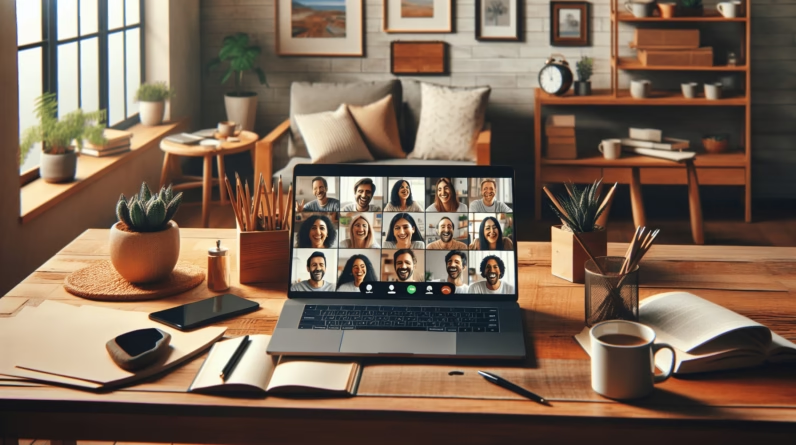What makes you stop and take notice when you visit a blog? Is it the content? The design? Or perhaps it’s the personality of the blogger that really captures your attention. As you embark on your blogging journey, understanding how to connect with your audience is crucial, and one of the best ways to do that is through an engaging About page.
Table of Contents
Why an About Page Matters
The About page isn’t just a formality; it’s your chance to make a memorable connection with your readers. You want to share your story, and that story should resonate with your audience. Crafting a compelling About page helps readers understand who you are and why they should care about your blog. It’s essentially your first handshake with your audience.
Discovering Your Niche
Aligning Interests with Market Demand
Before you start writing, consider the niche you want to focus on. What topics are you passionate about? For example, if you love cooking and have a flair for healthy meals, this could be a great niche. But remember, you should also think about market demand. Do some research to see if there’s an audience out there for your interests.
Tips to Identify Your Niche
- Brainstorm Your Interests: Write down what excites you. This list will help refine your niche.
- Market Research: Use tools like Google Trends to see what people are searching for.
- Informal Surveys: Ask friends or family what they perceive to be your strengths or interests.
Tools to Streamline Your Blogging Process
Essential Blogging Tools
There’s a plethora of tools that can facilitate your blogging process. From writing and editing to promoting your posts, the right resources can make your blogging experience smoother and more productive.
| Task | Tool | Purpose |
|---|---|---|
| Writing | Google Docs | Collaborative writing and easy access |
| Editing | Grammarly | Grammar and spell-checking |
| Social Media | Buffer | Schedule posts across various platforms |
| Analytics | Google Analytics | Understand audience behavior and blog performance |
| SEO | Yoast SEO | Optimize content for search engines |
Why Knowing Your Tools Matters
Understanding how to use these tools can save you time and enhance your efficiency. As a beginner blogger, mastering these resources helps you focus on what truly matters—creating engaging content.
Common Pitfalls to Avoid
Learning from Others’ Experiences
Starting a blog can feel overwhelming, and you might encounter some common pitfalls. Recognizing these challenges will ultimately guide you in avoiding them.
Frequent Mistakes New Bloggers Make
- Neglecting Analytics: Failing to track your audience engagement can stunt your growth.
- Inconsistency: Having an irregular posting schedule can lead to loss of readership.
- Ignoring SEO: Not optimizing your posts can make it difficult for new visitors to find you.
How to Overcome These Challenges
Engage in consistent learning. Surround yourself with fellow bloggers or join communities where you can share experiences. By learning from others, you can avert costly mistakes.
Writing an Effective About Page
Connecting with Your Audience
Your About page should feel like a conversation rather than a resume.
Key Elements of a Great About Page
- Personal Story: Share your journey and what brought you to blogging.
- Mission Statement: Clarify what you aim to achieve with your blog.
- Call to Action: Encourage visitors to connect, subscribe, or follow you on social media.
Tips for Crafting Your Narrative
When writing your About page, think of it as storytelling. Share why you started blogging, the challenges you’ve faced, and what you hope to achieve. Your readers will appreciate your authenticity.
Content Creation Strategies
Enhancing Your Writing Skills
Writing is an evolving skill. If you want your blog to thrive, you’ll need to consistently sharpen your writing.
Practical Tips for Better Writing
- Write Regularly: The more you write, the better you get.
- Read Widely: Expose yourself to different writing styles and genres.
- Seek Feedback: Don’t shy away from constructive criticism from fellow bloggers.
Content Planning and Organization
Planning your content can make your blogging life easier. A content calendar helps you stay organized and ensures you cover a wide variety of topics without scrambling.
| Week | Topic | Status |
|---|---|---|
| Week 1 | SEO Basics | Drafted |
| Week 2 | Social Media Strategies | In Progress |
| Week 3 | Beginner Blogging Pitfalls | Upcoming |
Monetizing Your Blog
Different Avenues for Income Generation
Blogging can be a rewarding endeavor, not just for personal satisfaction, but also financially.
Popular Monetization Methods
- Affiliate Marketing: Promoting products or services and earning a commission.
- Sponsored Posts: Collaborating with brands for paid content.
- Selling Products: Creating and selling your own e-books or online courses.
Making Money with Your Blog
Research each method thoroughly and determine which aligns best with your content and audience. It’s essential to maintain authenticity. Readers can easily spot someone who is only in it for the money.
Using Analytics Tools
Measuring Success
Understanding how your blog performs can be enlightening. Analytics helps you measure what works and what doesn’t.
Key Metrics to Monitor
- Page Views: Gauge how many people visit your blog.
- Bounce Rate: Understand how many visitors leave after viewing only one page.
- Average Session Duration: Know how long your audience stays on your blog.
Analyzing Data for Improvement
Utilize Google Analytics or similar tools to interpret this data. It will guide your content strategy as you adjust based on what your audience enjoys.
Audience Engagement and Retention
Building a Loyal Community
Retaining readers is as crucial as attracting them. Engaging with your audience can turn casual visitors into loyal followers.
Strategies for Increased Engagement
- Respond to Comments: Show that you care about reader feedback.
- Use Polls and Surveys: Ask your audience what they’d like to see more of.
- Create a Newsletter: Keep readers informed and connected through email.
The Power of Relationships
Blogging isn’t just about content; it’s about community. Building relationships with your readers creates a conducive environment for loyalty.
Navigating Blogging Platforms
Choosing the Right Platform
Once you’ve decided on your niche and tactics, consider the blogging platform that suits your needs best. Your choice can impact your blogging experience.
Popular Blogging Platforms
- WordPress: Highly customizable with an extensive plugin library.
- Blogger: User-friendly for beginners.
- Wix: Great for visual appeal with drag-and-drop features.
| Platform | Best For | Customization Level |
|---|---|---|
| WordPress | Serious bloggers | High |
| Blogger | Casual writers | Low |
| Wix | Visual content | Medium |
Tips for Platform Selection
Consider your goals and technical capability. If you’re not tech-savvy, a simpler platform like Blogger may work best to start with.
Leveraging Social Media
Your Content’s Best Friend
Social media can act as a powerful ally in promoting your blog.
Effective Strategies for Social Media
- Choose the Right Platforms: Focus on where your target audience hangs out.
- Create Shareable Content: Infographics, quotes, and engaging images catch people’s eyes.
- Use Hashtags Wisely: They can increase your content’s visibility.
Consistency Is Key
Posting regularly on social media builds anticipation and maintains engagement. Invest time in curating content that resonates with your audience.
Crafting Compelling Headlines
The Art of Attracting Readers
Your headlines are the first things your potential readers will see. A good headline can make a significant difference in attracting clicks.
Techniques to Write Better Headlines
- Use Numbers: “7 Tips for…” captures attention.
- Ask Questions: “Want to Improve Your Blog?” piques curiosity.
- Be Specific: “Grow Your Blog Traffic by 50%” gives clear promises.
Testing Your Headlines
Don’t be afraid to test various headlines to see what resonates best with your audience. This simple practice can significantly enhance your blog’s performance.
Basic SEO Strategies
Boosting Your Blog’s Visibility
Search Engine Optimization (SEO) is essential for making your blog easier to find. This involves both on-page and off-page techniques.
Key SEO Practices for Bloggers
- Keyword Research: Use tools like Ubersuggest to find relevant keywords.
- Meta Descriptions: Craft impactful summaries that increase click-through rates.
- Internal Linking: Direct readers to other relevant posts within your blog.
| SEO Aspect | Importance |
|---|---|
| Keyword Research | Improves search visibility |
| Meta Descriptions | Attracts clicks from search results |
| Internal Linking | Enhances user experience |
Learning SEO
Consider taking an online course on SEO. This foundational knowledge can empower your blogging efforts and increase your chances of success.
Role of Email Marketing
Establishing a Direct Connection
Building and managing an email list can be your most powerful tool for engagement.
Why You Should Consider Email Marketing
- Direct Communication: Reach your audience without platform interference.
- Personalization: Tailor your messages to specific segments of your audience.
- Content Distribution: Use emails to share blog posts and updates effortlessly.
Building Your Email List
Start by offering something valuable in exchange for email sign-ups—like a free ebook or exclusive tips. Building your list is an ongoing process, so stay communicative with your subscribers.
Interpreting Analytics Data
Improving Based on Performance
Data interpretation is essential for making informed adjustments to your blogging strategy.
Key Data Points
- Traffic Sources: Know where your visitors are coming from.
- Popular Posts: Identify which content generates the most interest.
- Audience Demographics: Understand who your readers are.
Using Data for Strategy Adjustment
Regularly review your analytics to identify trends. Utilize this knowledge to tailor your content, engagement tactics, and marketing strategies effectively.
Conclusion: Your Next Steps
Building an engaging About page sets the stage for a successful blogging journey. From finding your niche and utilizing tools, to engaging with your audience and mastering SEO, every element plays a critical role. Approach each component as a learning experience; iterate and evolve your strategies based on feedback and performance metrics.
As you continue down this path, remember that your blog is a reflection of who you are. Authenticity resonates, so let your voice shine through every post you create. Happy blogging!







